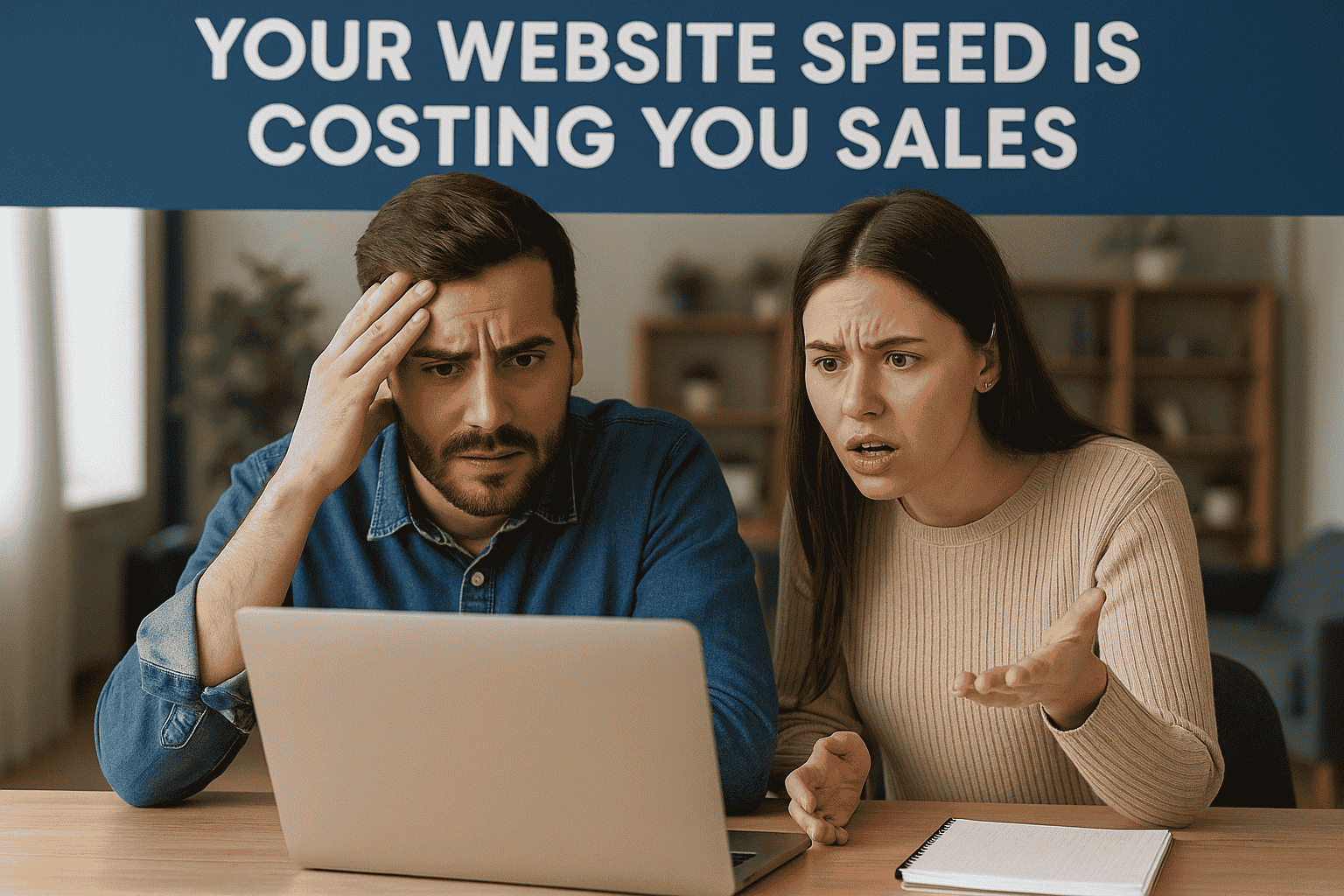
Your Website Speed Is Costing You Sales
A slow-loading website is more than just an inconvenience—it’s a silent revenue killer. In the fast-paced digital world, users expect sites to load in under three seconds. If your website doesn’t meet that mark, you’re already losing potential customers. For solo entrepreneurs, startups, and especially e-commerce business owners, website speed can make or break your success.
The Truth About Load Time and Conversions
Studies consistently show that every additional second of load time reduces conversions by up to 20%. Imagine spending money on marketing campaigns, SEO, or ads, only to lose traffic at the very first touchpoint. Most users won’t wait—they’ll bounce and move to a competitor whose website is faster.
Google Notices Too
Website speed isn’t just important for user experience. Google includes page speed as a ranking factor for both desktop and mobile searches. That means a slow site could be the reason your business doesn’t show up on page one of search results.
E-Commerce Sites Are Losing Big
For online stores, speed directly impacts cart abandonment rates. A few extra seconds of delay can cost you thousands in lost revenue monthly. Whether you’re selling fashion, tech, or digital services, users want a seamless experience—and slow pages break that.
What Causes Slow Speeds?
- Unoptimized images
- Outdated plugins or themes
- Poor hosting providers
- Excessive scripts and tracking codes
- No caching mechanisms in place
These common issues often go unnoticed by business owners until it’s too late. And fixing them isn’t just a developer’s job—it’s a business growth strategy.
How To Fix It
Speed optimization doesn’t require a full site overhaul. Start with these actionables:
- Compress and resize all images
- Use a Content Delivery Network (CDN)
- Minimize CSS, JavaScript, and HTML
- Use lazy loading for images and videos
- Choose fast, secure hosting
Your Competition Is Already Faster
Your competitors—those gaining more traffic and sales—are likely investing in site speed. Don’t get left behind in Mumbai’s evolving digital landscape. If you want to rank higher, convert better, and grow faster, your first move should be fixing your website’s performance.
Also Read From Our Blog:
- 10 Reasons Your Competitors Are Growing Faster And How You Can Catch Up
- Reels Are Helping Brands Get Noticed
- You Don’t Need a Huge Budget to Grow Online — Here’s Proof
- Getting Leads Without Big Ad Budgets
At Intellitron Genesis, we help businesses stay ahead in a digital world where speed equals trust, and trust equals revenue.

0 comments